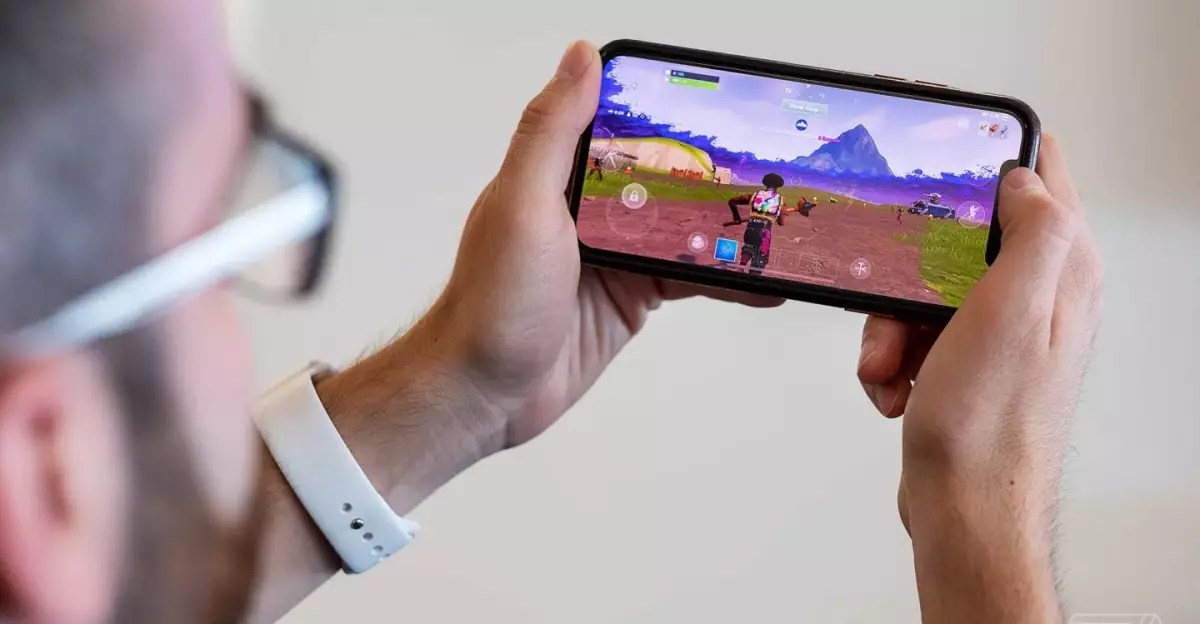In a dramatic turn of events over the last five years, Fortnite, the iconic battle royale game developed by Epic Games, has returned to the App Store on iOS devices. Initially ejected from the platform due to a controversial in-app payment system that breached Apple’s regulations, the saga between Epic and Apple has evolved into one of the most significant legal battles in the tech landscape. The skirmish underscores broader discussions about app store monopolies, payment systems, and consumer rights in the digital age.
The Legal Rollercoaster
After Apple yanked Fortnite from the App Store nearly five years ago, the legal ramifications have created ripples throughout the industry. The court case, Epic Games v. Apple, became pivotal when a judge ruled that Apple could not prevent developers from offering outside payment options. This decision was not only a win for Epic but also for many developers who find themselves stifled by Apple’s stringent revenue-sharing model. The judgment altered the fundamental dynamics of app distribution and set a legal precedent that challenges the fortress-like structure of the App Store.
CEO Tim Sweeney’s advocacy has been instrumental in propelling concerns about monopolistic practices into the spotlight. His “peace proposal” to Apple, offering to drop all litigation if the company agreed to extend the court’s ruling globally, presents a pragmatic solution to ongoing disputes but also highlights the chasm between developer needs and corporate policy.
The Return: Significance Beyond Gaming
The reintroduction of Fortnite to the App Store isn’t merely about one game’s return; it symbolizes the shifting tides in how payment structures and app markets might be orchestrated in the future. As of now, players can download Fortnite directly, with the initial download being manageable, albeit followed by a sizable content update, reflective of modern gaming’s elaborate architecture.
The 20 percent Epic Rewards promotion encourages users to break away from traditional payment pathways. By incentivizing the use of its own payment system, Epic is not just pushing back against Apple’s commission model; it is empowering consumers with choices and, to an extent, redefining the purchasing behavior within the gaming ecosystem. It’s a bold move that could influence how developers approach their in-app monetization strategies in a marketplace that is aggressively evolving.
Looking Ahead: What’s Next for App Stores?
While the legal battles might have granted Epic a temporary victory, the larger questions remain about the future of app marketplaces and developers’ autonomy. Will other companies follow Epic’s lead, potentially resulting in a cascade of changes in app store regulations globally? The fallout from this case could resonate well beyond the gaming sector, influencing all digital marketplaces where similar issues of power dynamics and financial structures exist.
Moreover, as consumer rights become more centralized in discussions about digital purchases, the scrutiny of tech giants is likely to intensify. The decisions born from the Epic vs. Apple saga could lay the groundwork for additional regulations and act as a wake-up call for companies that operate with opaque payment practices.
A Community Unites
The excitement surrounding Fortnite’s return goes beyond legalities; it’s about the community of players and developers who have long waited for this moment. Social media is abuzz with anticipation, nostalgia, and a rekindled sense of excitement. Users who’ve invested hours, money, and passion into the game can now reconnect with friends in the virtual arenas once again.
Epic’s tactical maneuvers—ranging from community engagement to legal strategies—demonstrate an understanding of their player base as part of a broader ecosystem. Their newfound capabilities could reshape not just how Fortnite operates but also how games traditionally interact with their consumers through monetization and loyalty programs.
In the dynamic world of gaming and technology, Fortnite’s comeback serves as a critical reflection on the nature of app markets and competitive fairness. The landscape may be evolving, but one thing is clear: Epic’s journey is far from over, and the gaming community is in for a thrilling ride.


Leave a Reply